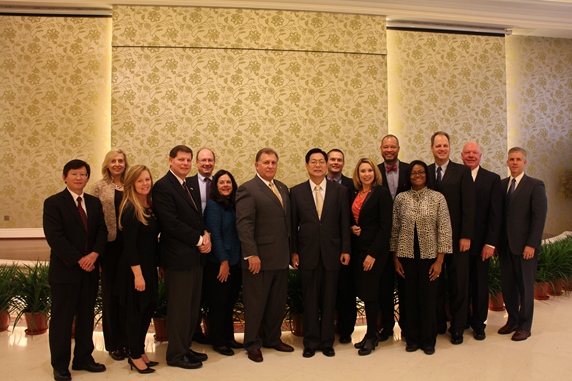
Vice President Xie Yuan met with the delegation of National Conference of State Legislatures (NCSL) from the U.S. on November 9th , 2015. The delegation is led by NCSL President and Utah Senate President Pro Tempore Curtis Bramble, and composed of legislative leaders and members from six states including Utah, South Dakota, Wyoming, Colorado, Nevada and Rhode Island.
Vice President Xie Yuan said that the delegation’s visit is at the important juncture of China-U.S. relations. On the one hand, state relations provide important foundation for sub-national exchanges. With China-U.S. relations getting closer, the two countries have already established over 240 pairs of sister state/province and sister city relationship. On the other hand, sub-national relationship is the cornerstone of state relations, and provides great opportunities for people-to-people exchanges. The CPAFFC and the State Legislative Leaders Foundation (SLLF) of the United States have agreed to establish the China-U.S. Sub-National Legislatures Exchange Mechanism, and will sign the agreement in Florida next month. The two sides are planning to co-host the First China-U.S. Sub-National Legislatures Cooperation Forum in 2016. Over the years, CPAFFC and NCSL kept good cooperative relationship. It is hoped that the two sides will work together to further promote China-U.S. sub-national exchanges and legislatures exchanges.
Curtis Bramble said that, NCSL is composed of 7383 elective legislators and speaks collectively for U.S. states and territories. U.S.-China sub-national relationship is very important, and sub-national legislatures cooperation is one of its key components. At present, Utah and Liaoning have already established legislatures exchange and cooperation relationship. It is hoped that the two sides work together to expand this relationship among more states and provinces in the future.


